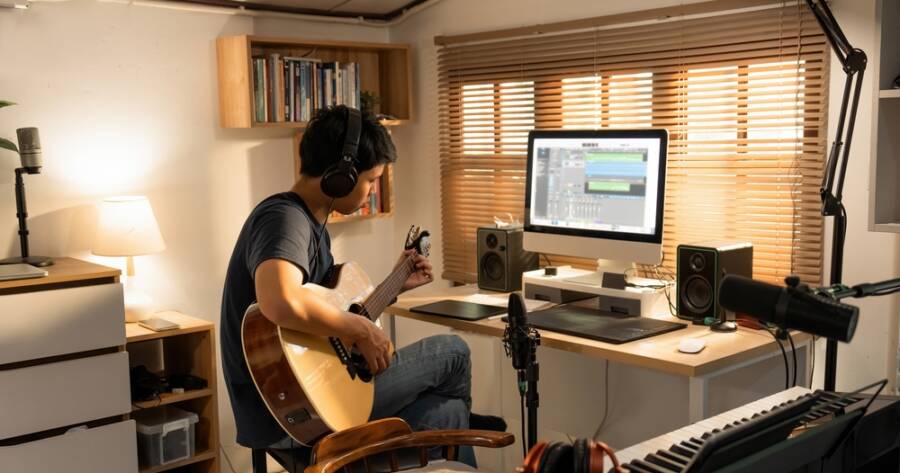Embark on your music production journey! Discover the essential tools, techniques, and tips to transform your creative ideas into polished tracks. Whether you’re starting from scratch or refining your skills, there is a course for you!
What is a Music Production Course?
A music production course provides individuals with the knowledge, skills, and techniques necessary to create, record, mix, and master musical compositions.1 These courses typically cover a wide range of topics, including music theory, sound engineering, digital audio workstations (DAWs), MIDI programming, sampling, synthesis, and mastering. Music production courses can be found at a variety of educational institutions, including community colleges, vocational schools, and universities. Some courses are also available online.
Music production courses can benefit individuals who are interested in pursuing a career in the music industry. They can also be beneficial for musicians who want to learn how to record and produce their own music. In addition, music production courses can be a fun and rewarding way to learn about music and technology.
Learn the Art of Music Production
Music production is an art form that requires a combination of technical skills and creative vision. A music production course can help individuals develop both of these skills. Students will learn how to use DAWs to record and edit audio, how to create and program MIDI sequences, and how to mix and master their tracks. They will also learn about the different elements of music production, such as arrangement, harmony, and melody.
In addition to technical skills, music production courses also help students develop their creative vision. Students will learn how to experiment with different sounds and techniques to create their own unique musical style. They will also learn how to work with other musicians and producers to create collaborative projects.
Master the Tools and Techniques
A music production course will teach individuals the tools and techniques they need to create professional-quality music. Students will learn how to use a variety of software and hardware, including DAWs, synthesizers, samplers, and effects processors. They will also learn about the different recording techniques and microphone placement techniques used in music production.
In addition to learning about the technical aspects of music production, students will also learn about the creative process. They will learn how to develop their own musical ideas and how to turn those ideas into finished songs. They will also learn how to work with other musicians and producers to create collaborative projects.
How to Find the Best Music Production Courses
When choosing a music production course, prioritize those with comprehensive curriculums that cover both technical and creative aspects of production. Look for courses taught by experienced instructors with industry credentials. Ensure the course offers hands-on practice with popular software like Ableton Live or Logic Pro, and provides access to high-quality resources and equipment. Check for positive reviews and testimonials from past students.
Additionally, consider whether the course offers flexible learning options, such as online modules, and opportunities for one-on-one mentorship or peer collaboration. Lastly, evaluate the course’s support for post-completion, such as job placement assistance or a strong alumni network.2
Learn More About Music Production
There are many resources available to individuals who want to learn more about music production. These resources include books, articles, online tutorials, and software programs. Individuals can also find music production courses at a variety of educational institutions. With the right resources and dedication, anyone can learn how to produce music.
